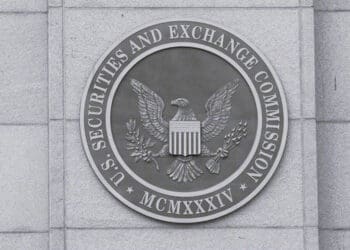Most companies change audit firms eventually, but the process isn’t easy and can present many challenges during and after the fact. Ron Kral describes steps you can take to mitigate them.
Was your annual audit or quarterly filing process with the SEC more painful than usual? Did you hear more about petty issues rather than meaningful insights? Did you have to reorient a new team of auditors just like last year? There are a multitude of reasons to consider a change, including simply seeking a new independent perspective.
According to Nicole Hallas of Audit Analytics, companies tend to stick with their audit firm for an average duration of 15 years. The median length is 10 years. Their analysis also shows that companies with a higher revenue are more likely to retain their audit firm for longer time periods. While there are several different perspectives on the pros and cons of changing audit firms, changing audit firms is a process that many companies undergo at some point. Nevertheless, developing a new auditor relationship can be a daunting task.
Whether you’re looking for a new perspective, enhanced access to resources or greater responsiveness, it is important to prioritize the transition of audit firms and not take anything for granted. The transition process can be smoothed with a vetting process to identify the right firm, people, processes and technology to meet your needs in the way of seamless onboarding. Here are some steps to help ensure a smooth transition.
Changing Audit Firms: 7 Steps for a More Streamlined Transition
1. Get to Know the Core Team
Do not hire an audit team without first getting to know the proposed audit partner and senior audit manager. Accepting a core team blindly is always risky since there are good and bad teams within audit firms – especially taking into consideration the fit of industries, size and governance structures. Be careful to assess personalities in addition to technical skills.
2. Understand Their Approach
A new auditor can bring a fresh take on a technical issue, deeper industry or business understanding and greater access to global resources. Management and audit committee members should ensure they are aligned on any changes in approach, timeliness and access they seek regarding the new firm. This will help mitigate challenges from surprise issues, cumbersome information exchange and lack of communication. Also, seek to understand their holistic approach to audit quality, as QC partners coming late in the process can trigger audit delays. Validate their approach by asking for key quality indicators of an audit and run some scenarios by them to help with your understanding.
3. Maximize the Initial Meeting
Meet with your prospective audit team as part of the due-diligence process. This will help in addressing the prior points in gauging accessibility, responsiveness, service approach and the depth and breadth of resources they offer. It’s the time to be candid about what wasn’t working with your previous auditor and what the goals and expectations are for your business and the relationship. The more open you are, the more quickly a new auditor can be effectively vetted. Let them know that you demand honest transparency.
4. Review the Firm’s PCAOB Inspection Reports
The Public Company Accounting Oversight Board (PCAOB) assesses compliance with certain laws, rules and professional standards of audit firms’ work for public companies, other issuers and broker-dealer clients. You can quickly look-up the perspective firms’ Inspection Reports through the PCAOB website. These reports summarize any deficiencies identified through the inspections process and can be insightful.
5. Test New Technology
Innovation in audit process and technology can help companies create more efficiencies and transparencies. Companies should make sure that onboarding to a new auditor’s client portal will be both secure and user-friendly to avoid tech-related headaches. Your client portal should be a one-stop shop for project status, resources and insight. Ask for a demo to make sure the platform will meet your needs.
6. Disclose the Potential Change or Decision
Consider your stakeholders in this process, especially creditors and regulators. Confirm with company debt covenants that the new audit firm will be acceptable, especially if considering a smaller audit firm. For public companies transitioning auditors, the SEC requires a Form 8-K disclosure within four business days of the decision. It is a best practice to have full transparency with your stakeholders on the basis for the change and to share your audit committee’s approval.
7. Get Started
Provide open lines of communication so your new auditor can ask questions. Also, ensure timely access to requested data to help ensure they can get started immediately. Work with your new firm to determine the right cadence for in-person meetings and informal check-ins to stay on track.
Conclusion
Don’t take for granted a smooth external audit firm transition. Some upfront work should help to mitigate the risks of a bad fit.
This is an article from the Governance Issues™ Newsletter, Volume 2021, Number 2, published on April 22, 2021 by Kral Ussery LLC.



 Ron Kral is a partner of
Ron Kral is a partner of 






